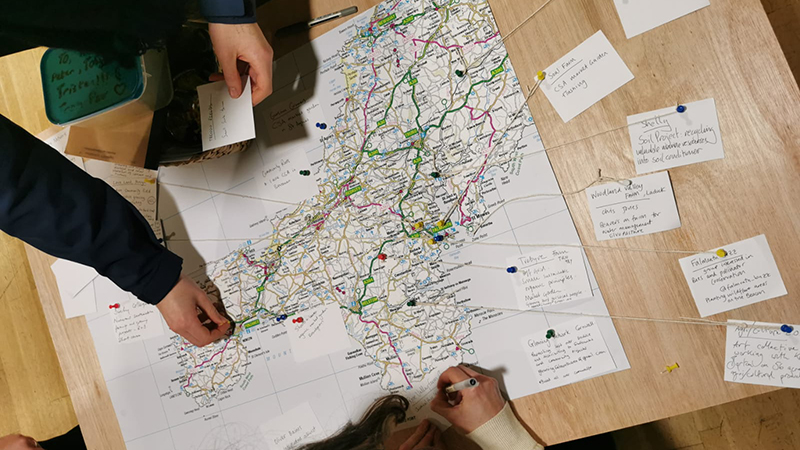Contract Period : 01/02/2024 - 31/12/2024
Main Funder : Farming in Protected Landscapes (FiPL) Cornwall National Landscape
ORC Staff Contact : Julia Cooper

Agroecology promotes biodiversity, nutrient recycling, and farmer-community connections, crucial for achieving net zero and enhancing ecosystem services like biodiversity and flood control. Cornwall boasts innovative small-scale agroecological producers, yet logistical challenges hinder distribution. The Joining the Dots project fosters collaboration among growers, aiming to streamline produce distribution and catalyse Cornwall’s agroecological food system.
This project builds on participatory action research approaches trialled in the Organic Research Centre’s OATH (Organic at the Heart) project in the Cornwall National Landscape and adjoining areas. OATH facilitated a network of local producers (mostly market gardeners, all looking to prioritize the sale of agroecological produce in Cornwall) to share skills and knowledge and identify barriers to growth. Growers in mid/west Cornwall highlighted the challenges of driving long distances to buy local organic produce to complement their offering to their customers. This is costly, time-consuming and adds to the carbon footprint. It is also a huge barrier to a wider transition to local agroecological farming systems.
A grower-led initiative has emerged to explore possibilities to collaborate on those journeys and buy in produce to help catalyse a local agroecological food ecosystem – for the purpose of this project, we are defining this as a collaborative distribution network.
The project will be delivered in two phases with the following overall objectives:
Phase 1 will focus on data collection, scoping business models, barriers and opportunities for a collaborative network together with the wider working group. Building on existing initiatives and infrastructure and identifying needs, developing collaborative solutions to be piloted in phase 2. Key opportunities and interests for enhancing nature, place, people and climate on farms engaged and a suitable model to support them in phase 2 will also be identified in parallel.
The final outcome of Phase 1 will be to develop an action plan including a strategy to develop agroecology and biodiversity opportunity plans / designs for each farm, a funding strategy and applications for Phase 2 of the work.
Presentation to online meeting of growers in April 2024
Project lead, business planning work
Leading the project